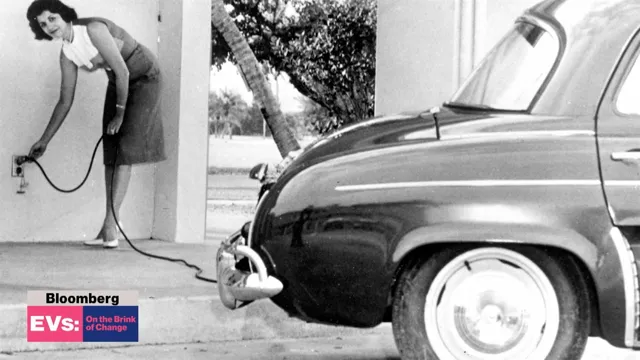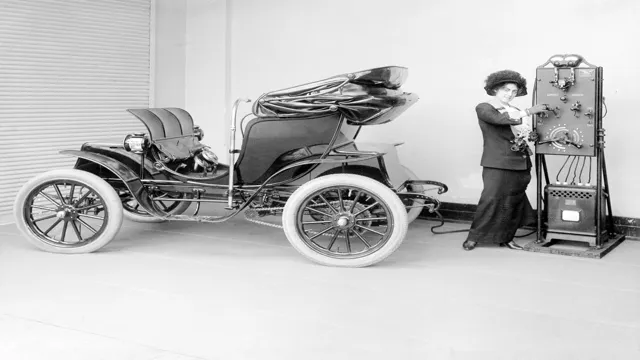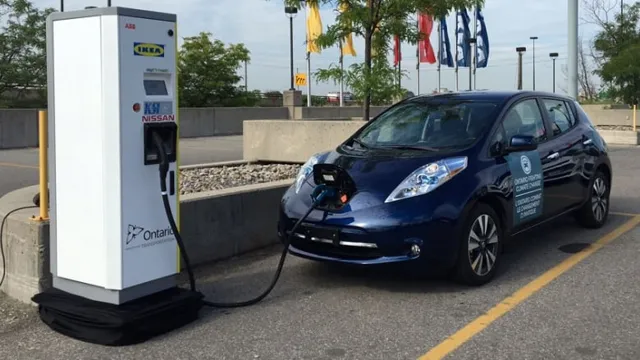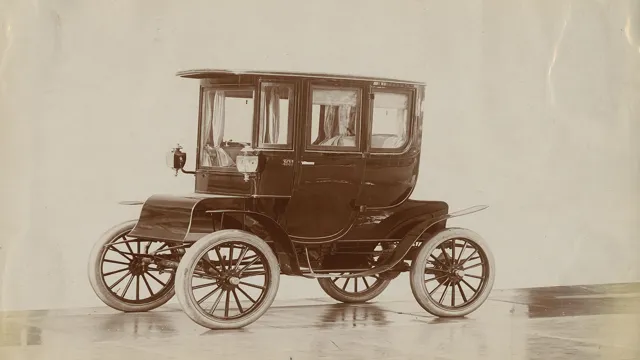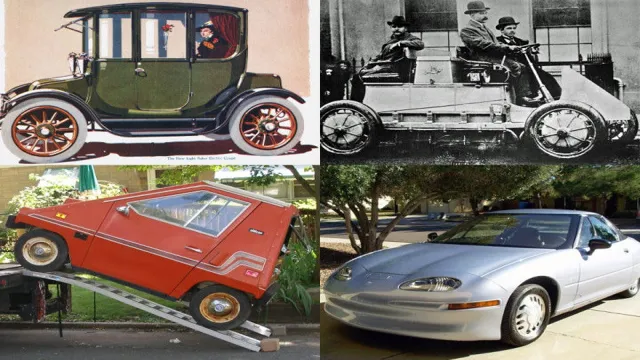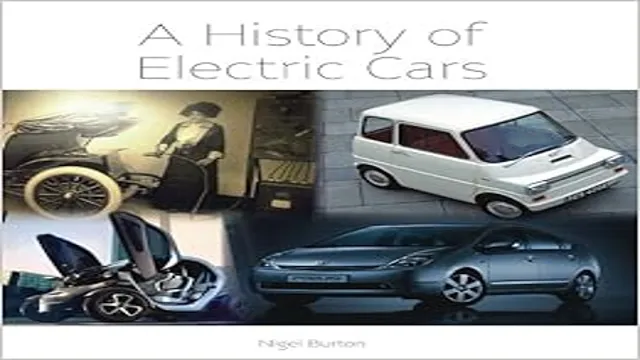The Electrifying Rise and Fall of the Electric Car: A PBS History
Have you ever wondered about the history of electric cars? How far back does the idea of an electrically powered vehicle really go? Many may not know that electric cars actually predate their gasoline-powered counterparts and have a rich history dating back to the mid-19th century. In fact, the first electric car was created back in the 1820s, and by the 1890s, electric cars were considered the norm. However, over time, the popularity of gasoline-fueled cars surged, and electric vehicles fell by the wayside.
It wasn’t until recent years that electric cars began making a comeback, but the history and evolution of these vehicles are fascinating to explore. One great resource to learn more about this topic is the PBS documentary “The History of the Electric Car,” which delves deep into the past, present, and future of these eco-friendly automobiles. In this blog post, we’ll take a closer look at the history of electric cars, from their invention to their resurgence in popularity, and discuss their impact on the environment and the future of transportation.
Early Development of Electric Cars
The PBS program about the history of the electric car dives into the early development of this innovative vehicle. Believe it or not, electric cars were actually more popular than gasoline-powered cars in the late 19th century. Electric cars were considered clean and reliable, and were even preferred by women because they were quiet and easy to operate.
However, the invention of the gasoline-powered engine ultimately led to the downfall of electric cars. Gasoline cars could travel farther and faster, making them more practical for long-distance travel. Additionally, the discovery of oil in Texas in 1901 made gasoline cheap and readily available, further increasing the appeal of gasoline cars.
Despite this setback, we should be grateful for the early development of electric cars and the strides they made in alternative energy transportation. Today, electric cars are making a comeback and are becoming more accessible and affordable for consumers.
Inventors and Innovators of Electric Cars
The early development of electric cars dates back to the mid-1800s when inventors such as Thomas Davenport and Robert Anderson were experimenting with small-scale electric vehicles. However, the first practical electric car was developed in 1884 by a British inventor named Thomas Parker. Parker’s electric car used high-capacity rechargeable batteries and was capable of reaching speeds up to 20 miles per hour.
Another notable electric car inventor was Ferdinand Porsche who designed the Egger-Lohner C.2 Phaeton in 189 This electric car utilized a hub motor in each wheel, a concept that is still used in modern-day electric cars.
Over time, electric cars became more popular due to their quiet operation, zero emissions, and overall efficiency. Despite setbacks andcompetition from gasoline-powered cars, innovators like Elon Musk and Tesla have brought electric cars into the mainstream market and revolutionized the automotive industry.
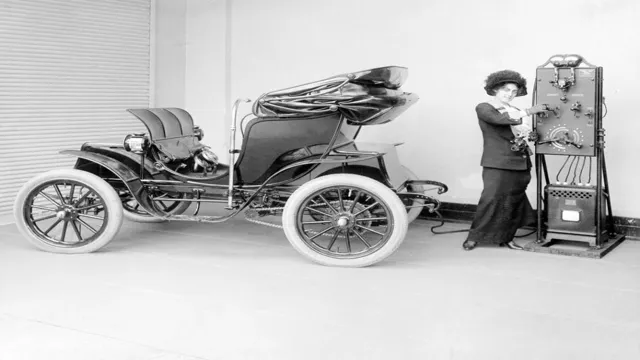
Popular Electric Car Models throughout History
In the early development of electric cars, there were a few models that stood out and gained popularity among consumers. One of the first electric cars to be produced was the Baker Electric in the late 1800s. It was a luxury vehicle that was favored by wealthy urbanites, as it was quiet and emitted no fumes, making it a more pleasant driving experience than the loud and smelly gasoline-powered cars of the time.
Another popular electric car model from the early years was the Detroit Electric, which was produced from 1907 to 193 It had a range of up to 80 miles per charge, making it a practical option for city driving. It was also marketed towards women, who appreciated its ease of use and lack of complicated mechanical parts compared to gasoline-powered cars.
These early electric car models set the stage for the development of modern electric cars and helped shape the public’s perception of them as a viable alternative to traditional gasoline-powered vehicles.
The Resurgence of Electric Cars
The PBS documentary “The Electric Car” discusses the history of electric vehicles in the United States and their recent resurgence. Although electric cars are often viewed as a modern invention, they actually have a long and interesting history dating back to the 1800s. In fact, at the turn of the 20th century, electric cars were more popular than gasoline cars, with a third of all cars being electric.
However, the cheaper and more efficient gas cars eventually won out, and electric cars became a niche market until the recent rise in electric technology and environmental concerns. Now, with advancements in battery technology and more affordable price points, electric cars are becoming a much more viable option for consumers. From the Tesla Model S to the Nissan Leaf, electric cars are quickly gaining popularity and changing the way we think about transportation.
The PBS History of the Electric Car sheds light on how far electric vehicles have come and how they are poised to shape our future.
Environmental and Economic Benefits of Electric Cars
Electric Cars Electric cars are experiencing a resurgence in popularity due to their enormous environmental and economic benefits. Environmentalists applaud them for their zero emissions, while economists praise them for their reduced operating costs and long-term savings. In addition to being eco-friendly, electric cars are also incredibly efficient and reliable.
They offer instant torque and impressive acceleration, making them a joy to drive. Additionally, their regenerative braking systems help to extend their battery life, which reduces the need for expensive battery replacements. Another advantage of electric cars is that they require less maintenance than their gas-guzzling counterparts.
All of these incredible benefits of electric cars combine to make them a smart choice for those who want to save money and help the environment at the same time. Whether you are looking for a new car, or just curious about the future of transportation, electric cars are the way to go.
Advancements in Electric Car Technology
The automotive industry has witnessed a phenomenal resurgence of electric cars, which are fast becoming the go-to choice for environmentally conscious individuals. The advancements in electric car technology have made them more affordable, efficient, and sustainable than ever before. From long battery life to quick charging times, electric cars have come a long way.
With the rise of electric cars, there has been a growing need for charging infrastructure, and today, there are more charging stations than ever before. Moreover, policymakers are pushing for the recharging network to be more universally accessible, making it easier for people to choose electric cars without worrying about the range. Electric cars also offer various tax credits and incentives, making them more affordable than ever.
These developments, coupled with the need for sustainable transportation, are making electric cars the future of the automobile industry.
Big Players in the Modern Electric Car Industry
The electric car industry is experiencing a renaissance, with many big players now involved in producing these eco-friendly vehicles. The resurgence of electric cars comes as consumers become more environmentally conscious and as governments around the world are pushing for greener technology. Companies such as Tesla, Nissan, and Chevrolet are leading the way with their sleek, modern electric cars that are revolutionizing the automotive industry.
Tesla, in particular, has been at the forefront of electric car innovation, with its Model S offering consumers long-range driving on a single charge. Nissan has also made waves with its all-electric Nissan Leaf, which boasts impressive fuel efficiency. And Chevrolet’s Bolt EV has been hailed as a game-changer, with a range of over 200 miles on a single charge.
These big players in the electric car industry are proving that eco-friendliness and performance can go hand in hand, and they’re setting the stage for a more sustainable future for the planet.
What Does the Future Hold for Electric Cars?
PBS’s documentary “History of the Electric Car” showcased the evolution of electric cars and the challenges they faced in gaining mainstream popularity. Despite early setbacks, electric cars are experiencing a resurgence due to advancements in battery technology, government incentives, and increased awareness of the environmental impact of traditional gasoline-powered vehicles. The future looks promising with major automakers committing to electric vehicle production, and even the development of cheaper, more efficient models.
However, challenges remain such as building a charging infrastructure, addressing range anxiety, and addressing the environmental concerns surrounding the production and disposal of batteries. Overall, the future of electric cars is bright, and with continued innovation and awareness, they have the potential to revolutionize the automobile industry. The PBS documentary reminds us that electric cars are not a new idea, but rather a rediscovered technology that can help us move towards a more sustainable future.
Electric Car Projections and Predictions
Electric Car Projections and Predictions The future of electric cars is looking bright with projections and predictions showing a significant increase in their popularity and usage. Experts believe that by 2040, sales of electric cars will surpass those of traditional gasoline-powered vehicles. This transition towards electric cars is becoming more prevalent due to initiatives taken by governments across the globe to reduce carbon emissions.
Furthermore, advancements in technology have led to the creation of more efficient batteries with longer ranges. This means that electric cars are becoming more practical for everyday use, making them a viable option for people. Additionally, as more electric cars are produced and purchased, prices for these vehicles are expected to decrease steadily over time.
Overall, it appears that electric cars’ momentum will only continue to grow as we move towards a more sustainable future.
Barriers to Widespread Electric Car Adoption
Electric cars have been gaining popularity in recent years, but barriers still exist that limit their widespread adoption. One major hurdle is the current lack of charging infrastructure, making it difficult for drivers to travel long distances without having to stop and recharge frequently. Furthermore, the upfront costs of purchasing an electric car are typically higher than traditional gas-powered vehicles, which may deter some consumers from making the switch.
Additionally, limited driving range and battery life can also be a concern for drivers who are used to the convenience of refueling at any gas station. Despite these challenges, the future of electric cars looks promising, as advancements in technology and government incentives may help to overcome these barriers and make electric cars a more viable option for the average driver. As renewable energy becomes more affordable and widely available, electric cars could become an essential part of our transportation future.
Conclusion: Impact and Significance of the Electric Car Revolution
In conclusion, the history of the electric car is a remarkable journey that showcases the continuous evolution and innovation of the automobile industry. From the early experiments of inventors like Thomas Davenport to the modern electric cars of today, the electric car has come a long way. The challenges faced by early adopters of this technology were immense, from the limited range of the vehicles to the lack of infrastructure to support them.
However, the dedication and perseverance of those who believed in the potential of electric vehicles to revolutionize the transportation sector ultimately paved the way for the modern electric cars we see on our roads today. So let’s raise a toast to the electric car, powering ahead towards a brighter and cleaner future!
FAQs
What is the PBS history of the electric car?
The PBS series “NOVA” aired a documentary in 1996 titled “Electric Heartbeat: The Road to an Electric Car,” which explored the history and future of electric cars.
When did the first electric car appear?
The first electric car appeared in the 1830s, but it wasn’t until the late 1800s that they became more popular with the invention of rechargeable batteries.
Why did electric cars lose popularity in the early 20th century?
The invention of the gasoline engine and the discovery of vast oil reserves made gasoline-powered cars cheaper and more convenient than electric cars, leading to a decline in their popularity.
What advancements have been made in electric car technology in recent years?
In recent years, advancements in battery technology and electric motor efficiency have led to electric cars with longer ranges and faster charging times, making them a more viable option for everyday use. Additionally, there has been an increase in the availability of charging stations to support these vehicles.
